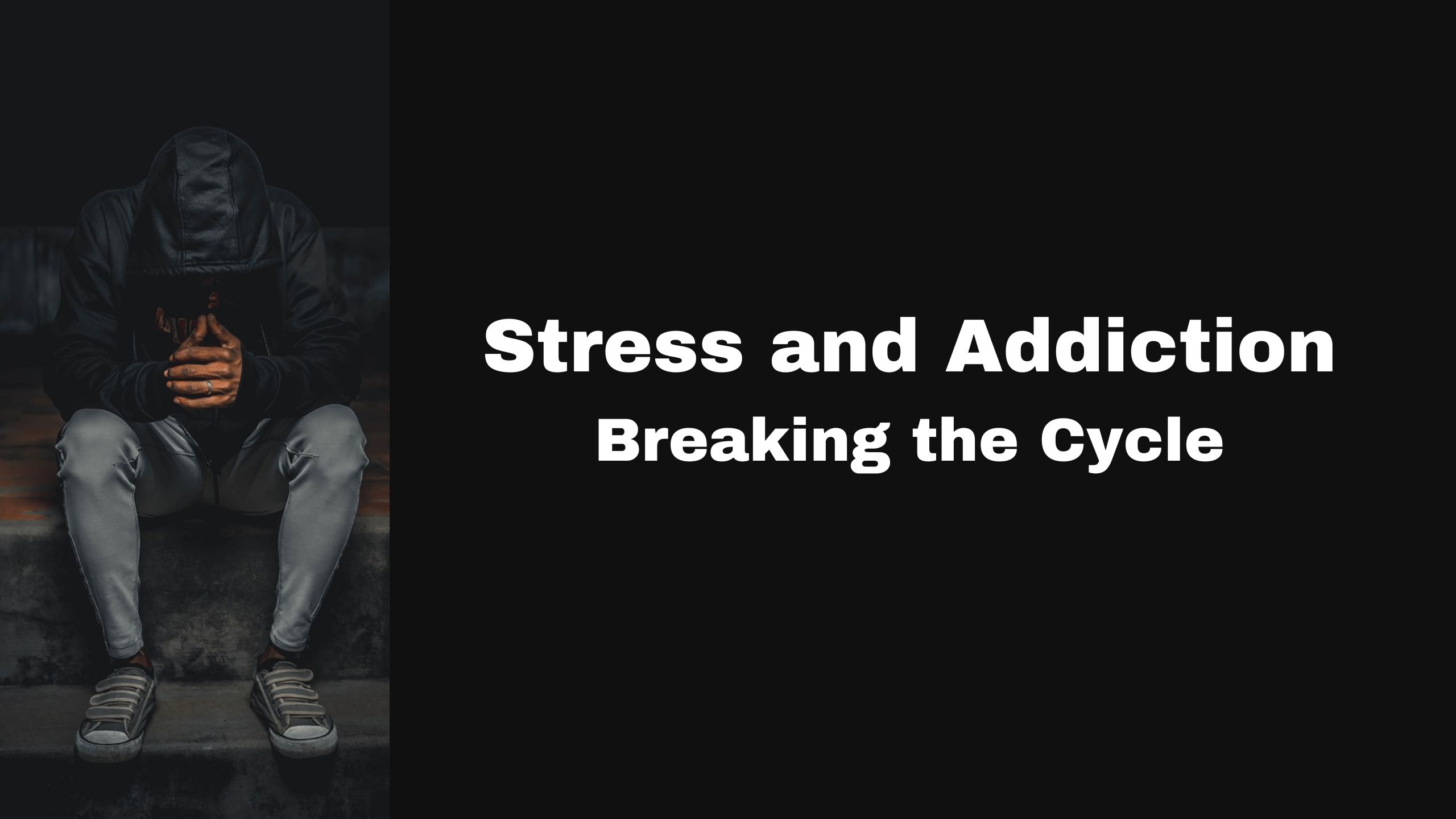Stress and Addiction: Breaking the Cycle
Stress is an inherent part of life, and it affects everyone at some point. While manageable stress can be a motivating force, chronic and overwhelming stress can lead some individuals down a challenging path towards addiction.
The relationship between stress and addiction is complex, but it’s crucial to understand that addiction is not the solution to stress relief. Breaking the cycle of stress and addiction requires comprehensive strategies and support to restore mental and physical well-being.
The Link Between Stress and Addiction
Stress triggers the release of stress hormones such as cortisol and adrenaline, preparing the body for a “fight or flight” response. In moderate amounts, this physiological reaction is healthy. However, persistent stress can lead to harmful coping mechanisms, such as substance abuse or addictive behaviors, to numb emotional pain or escape reality.
Common substances and behaviors people may turn to in response to stress include alcohol, tobacco, drugs, overeating, and gambling. These temporary “solutions” offer an illusion of relief but often worsen the situation, leading to a vicious cycle of stress and addiction.
Breaking the Cycle
Breaking the cycle of stress and addiction requires a multi-faceted approach that addresses the underlying causes of addiction and provides healthier coping mechanisms for dealing with stress. Here are some steps to consider:
Seek Professional Help: If you or someone you know is struggling with addiction, it’s essential to seek professional guidance. Substance abuse counselors, therapists, and support groups can provide the necessary support and treatment to address addiction and its underlying causes.
Understand Stress Triggers: Identify the specific stressors in your life and work on understanding them better. This awareness can help you develop healthier ways to cope with stress.
Learn Healthy Coping Strategies: Replace addictive behaviors with healthy coping strategies. Techniques like mindfulness, meditation, exercise, and creative outlets can help reduce stress and provide alternative ways to manage emotions.
Build a Support System: Surround yourself with a supportive network of friends and family who understand your struggles and are willing to help you through challenging times.
Treatment and Rehabilitation: In cases of severe addiction, professional treatment and rehabilitation programs may be necessary. These programs provide a structured environment for recovery, therapy, and skill-building.
Address Underlying Mental Health Issues: Often, addiction is intertwined with underlying mental health disorders such as anxiety or depression. Treating these co-occurring conditions is crucial for long-term recovery.
Modify the Environment: Make changes in your environment to reduce exposure to triggers that promote addictive behaviors. This might include avoiding places, people, or situations that tempt you to use substances or engage in addictive behaviors.
Set Realistic Goals: Set achievable goals for your recovery journey. Celebrate small victories along the way to maintain motivation and a sense of progress.
Practice Self-Compassion: Be kind to yourself throughout the process. Overcoming addiction is challenging, and setbacks may occur. Understand that relapse is not failure but an opportunity to learn and grow.
Conclusion
Breaking the cycle of stress and addiction is a challenging but essential endeavor. Addiction can further exacerbate stress, creating a harmful feedback loop that affects every aspect of life. Seeking professional help, understanding stress triggers, and adopting healthier coping strategies are key steps towards recovery.
Remember that recovery is a process, and it may involve setbacks along the way. The journey towards breaking the cycle of stress and addiction is best undertaken with professional guidance and the support of loved ones.
By addressing the underlying causes of addiction and learning healthier ways to manage stress, individuals can regain control of their lives and experience lasting well-being and freedom from addiction.

